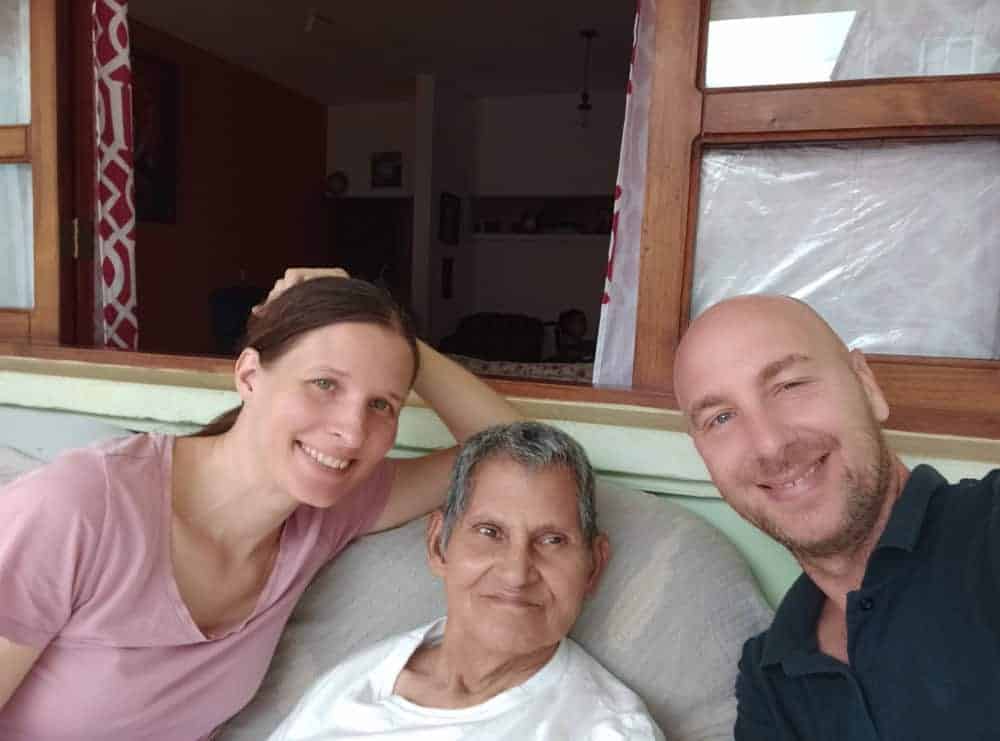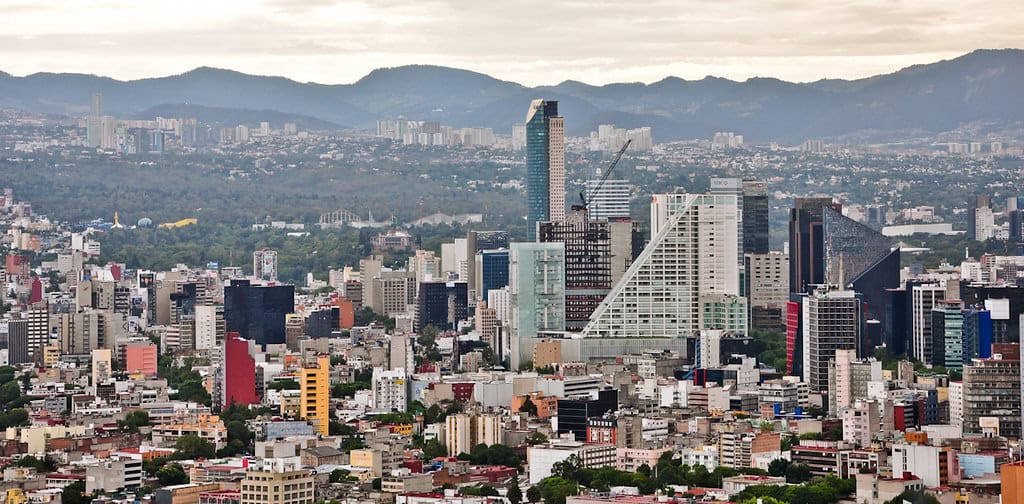We flew to Bangladesh, landing in the capital city of Dhaka. We were aware that our experience here was likely to be quite different from what we knew from our travels in the Philippines, Vietnam, Laos, Thailand, and Myanmar.
We came to one of the poorest countries in the world with a strict Muslim culture. We didn’t really know what to expect.
We Were Different
Even on the plane, we had a strong feeling that we were different. Almost all of the passengers were men. They stared at us as we moved around the plane and it was obvious that white people weren’t a common sight on this flight.
Flight attendants were also in the spotlight. You could see the dark male necks bending out into the aisles for a better view when one of them came by.
After landing, we headed toward customs with a bunch of other passengers. The airport was dirty, and the bathrooms were even worse.
What we weren’t used to were the ugly looks people gave us.
“What’s wrong with them?” silva asked.
It wasn’t until later that we were told that we were dressed a lot more “open” than the others around us. I was wearing shorts and a tee-shirt. Silva wore long clothes, but she wasn’t further covered by a hijab.
That was wrong, of course. In addition to long clothes, women usually have a tunic that crosses their knees, and a scarf around their necks and over their chests. Silva immediately pulled a hooded raincoat out of her bag, but I didn’t have any extra clothes on me.
Going Through Customs
That customs line was awfully long. The missionary, Pastor Ricardo, and I have an appointment already scheduled. At 8:00 in the evening, he’ll pick us up outside the airport and take us to his mission.
It was about 8:00 when we got our turn. We showed the passports, as the two officers asked. We were last in line, the clock was late, and the officers were bored, serious, and abrasive.
We weren’t used to that.
They go through our papers and look at us suspiciously. The last thing we wanted was complications in a country like this.
“The reason for coming into the country?” asked one.
“Tourism,” we said. Well, that’s how we were advised to say at the borders in Muslim countries (and in communist countries), because you never know how they’re going to respond to the answer “Christian missionary.”
‘Tourism?’ asked another. ‘Why?’
When he asked that way, I thought it was a little funny. Bangladesh isn’t exactly one of the most popular tourist destinations.
‘How long are you staying?’
“One month.”
“Good,” he said, closing our passports. ‘You have to pay for your visa there,’ he pointed to the office behind them.
We’re relieved, really – it went better than we expected. We walked into the office, paid for a one-month visa that cost us just over $100, and went back to the customs officers.
Now we were the only ones in the room. All the other passengers had already gone ahead to get their suitcases. We could only hope that our bags were still there.
The cop asked for passports again (as if he was looking for something else now) and took a serious look at us again.
“Show me your ticket to leave the country.”
Now we were in trouble.
Plans to Go Forward
We’d never been asked for a ticket to leave at customs before. We were travelling from country to country and we often only plan how we’re leaving and where we’re going later, depending on the circumstances and the possibility of transport. That was our usual explanation and it was usually enough.
It wasn’t enough this time.
“How can you allow yourself to come into the country without having tickets to go forward?” the officier asked even more rigorously than before.
We didn’t have a smart answer other than to explain, once again, how we travel.
“Unfortunately, you can’t go into our country without a ticket to leave it,” he said, closing our passports and returning them to us.
“But,” I said, “then why did we pay for the visa?”
“Because that’s the process,” he said, while another mused about it. “You know, we have laws in our country.”
I wish I didn’t say that. It was tragic already.
The state of the law. A country renowned for corruption, especially among the highest levels of politics and economy. A country that is among the first in the world to torture, kidnap, and execute. Where freedom of speech is extremely limited, where workers, women, and girls have no rights.
A country where there are more than 200,000 abandoned children on the streets alone, and so many of the slave girls are forced into prostitution or just “in the market” for redemption.
I had to bite my tongue.
It wasn’t helped by the request and the comment. But we noticed that they had stopped looking bored. In fact, it became apparent that they were having fun. And our situation was anything but fun.
Father Ricardo was waiting for us somewhere, and we couldn’t even tell him about the incident. We couldn’t make a phone call because we didn’t have cell phone data yet, and Ricardo didn’t use the Internet to make phone calls. He barely answered his e-mail.
We were tired, and my stomach started to hurt badly. I had a painkiller, but what it was in our bags on the other side of the customs desk. We couldn’t get to them until we solved the problem.
We sat on the waiting bench and thought about our options. We decided to buy a plane ticket and present it to the customs officers as proof that we don’t intend to stay in the country forever.
While Silva was trying to buy tickets (with a desperately slow internet and a connection that was constantly interrupted), my stomach pain was already at the limit of being intolerable.
Finally Allowed In
I couldn’t sit still anymore. My face was like a traffic light – turning straight from red to green.
I got up and walked around the room, past the customs officers at the desk, holding my belly. They were apparently working so they didn’t see me. All of a sudden, they were all on the same monitor. They must have been playing tetris on the computer.
I walked up to them and said I needed a pill because my stomach hurts. I asked to get to the bags somehow, because I have medication in them.
It must have been my face that softened them a little bit. One of the officers looked at me for a while, and I felt that somewhere, deep down, he was sympathizing with my pain, even though he didn’t want to show it. He was a little confused, as if he didn’t know what to do now.
“Do you have a ticket already?”
I looked at Silva, who was still struggling with the internet.
He lift his finger, and we stood in front of them again, like two schoolchildren trembling at the teacher’s decision.
“Passports please,” he said, reviewing our documents for the third time, even blank pages (even today I don’t know why), shifting his glances between us and our documents.
“All right,” he said, “I’m going to let you in.” He took a stamp and marked our passports. Then he looked at us strictly and said, “But remember, this was the last time.”
It was definitely the last time, I thought.
I’d Do it All Again
The experience we had on the mission at Ricardo’s was so beautiful and touching that i would buy plane tickets three times today if it was a condition of entry to Bangladesh.
Ricardo has passed away since our adventures in Bangladesh, but his community lives on. Once-abandoned children still have their own home and conditions for better growing up.




